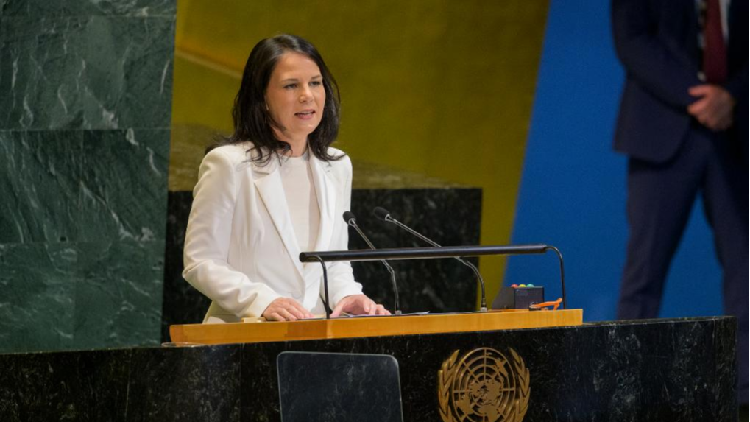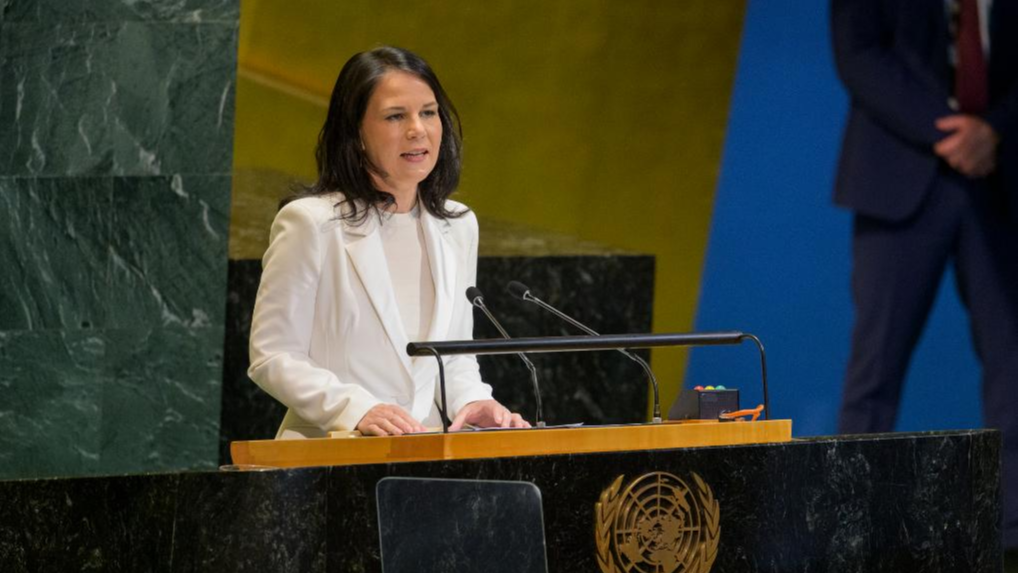Former German Foreign Minister Baerbock Elected President of UN General Assembly in Historic Win
Baerbock promises to serve as an honest broker and unifier for all 193 UN member states as she takes on the role of General Assembly president.


On Monday, former German Foreign Minister Annalena Baerbock was elected as president of the upcoming 80th session of the United Nations General Assembly, marking a significant moment at a time when the multilateral system faces extraordinary challenges. Baerbock secured 167 votes out of 188 ballots cast during a secret ballot vote, with 14 member states abstaining. She will officially assume her new role in September 2025, succeeding Philemon Yang of Cameroon.
In her address to the General Assembly following her victory, Baerbock pledged to act as an honest broker and unifier for all 193 UN member states. Emphasizing trust-based dialogue, she stated, "As president of the General Assembly, I will engage in a trust-based dialogue with all member states." She highlighted the urgent need for unity, particularly as the world organization faces immense political and financial pressures.
Baerbock acknowledged that the 80th session will come at a crucial juncture for the UN. She pointed to ongoing conflicts worldwide as evidence that the UN's founding mission—to save future generations from war—remains incomplete. "More than 120 armed conflicts remind us that the primary mission of the United Nations...remains unaccomplished," she remarked. She underlined the importance of taking bold, ambitious, and transformative actions to achieve the Sustainable Development Goals, noting that these goals remain out of reach unless the international community accelerates its efforts in line with commitments made in the Pact for the Future.
Despite these daunting challenges, Baerbock reaffirmed the organization's value, stating, "Nothing would be better without the United Nations." She called for renewed determination to both preserve the UN’s achievements since its founding in 1945 and adapt to pressing global crises and emerging future threats.
UN Secretary-General Antonio Guterres echoed these sentiments in his remarks, recognizing that Baerbock steps into her new position at a time of heightened uncertainty for the international community. He cited ongoing conflicts, climate catastrophe, poverty, inequality, and waning trust among nations as urgent issues facing the world body. "The Sustainable Development Goals are alarmingly off track. Aid and development funding are drying up," Guterres warned, adding that some UN structures still reflect "the world of yesterday, not a vision of tomorrow."
Guterres praised Baerbock’s vision titled "Better Together" as an inspiring rallying cry suited to the global challenges of today. He also underscored the historic significance of her election, as she becomes only the fifth woman ever to serve as president of the General Assembly in its eight-decade history.
As the 80th session approaches, the Assembly stands poised to address complex issues requiring global collaboration. The secretary-general called on nations to uphold the core values of solidarity and cooperation that have defined the UN since its inception, urging delegates to build a more peaceful and equitable world.
Baerbock brings extensive experience to her new post. She served as Germany's federal foreign minister from December 2021 to May 2025, and has been a member of the Bundestag since 2013. She led the Greens party as co-chair between 2018 and 2022, solidifying her profile as a key political figure. Born in Hanover on December 15, 1980, Baerbock holds a degree in political science from Hamburg University and a Master of Laws from the London School of Economics and Political Science.
Her election to the presidency of the UN General Assembly is being hailed as a moment of opportunity for reinvigorating international diplomacy and ensuring that the United Nations remains central to addressing the world's most urgent problems.




